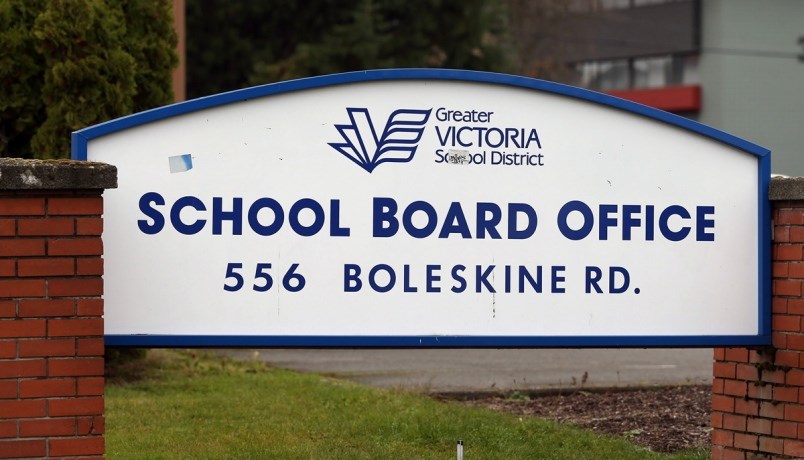A commentary written on behalf of a group of Indigenous women who are mothers, aunties, sisters and grandmothers to Indigenous children in the Greater Victoria School District, past and present.
We are concerned about the school board’s decision to end the police liaison officer program and blaming it on Indigenous people’s fear of police.
The board says that student safety is their concern and that their decision is “trauma-informed.”
Trauma-informed would understand that systemic racism exists in all institutions of society. A trauma-informed board would understand that students who don’t feel safe in their homes and at the hands of bullies or who have experienced sexualized violence, rely on the police for support.
A trauma-informed board recognizes that we live in a society with injustices and without the police, who do you call when people hit you, steal or damage your stuff, threaten you and violate your rights?
The police are a part of our social contract. We have rules and laws. We have institutions that address breaches and dole out consequences.
Is there systemic racism in the justice system? Yes.
As there is in education, health care, child welfare and governing structures. Why the board has decided to cherry pick by calling out the police is suspect.
What does the board do to address the systemic racism in public education? How has the board engaged with the Calls to Action by the Truth and Reconciliation Commission of Canada?
What training have they undergone to raise their awareness of creating a culturally safe governing structure for Indigenous people?
They cite support from a community group that is not connected to the school district. It is our understanding that the Greater Victoria School District is guided by Four Houses: The Songhees Nation; The Esquimalt Nation; The Métis Nation of Greater Victoria; and the Urban Peoples Indigenous House Advisory. And a District Elders’ Advisory Council.
When there are issues to discuss and decisions to make that pertain to Indigenous students and families of the Greater Victoria School District, we understood that these houses would be engaged to provide feedback from their communities.
This way, authentic Indigenous voice informs the school district so that breaches in protocol and perpetuating negative stereotypes that Indigenous people are uncomfortable around the police, are avoided.
Police officers are members of our society, members of our community, and many schools have built relationships with them over the years. They visit our schools and drum with our children.
Are there power differentials in the relationship between students and police? Yes, as there are with teachers, principals, education assistants, social workers, counsellors and other staff.
We do not have rose-coloured glasses with any group, but when it comes to building collaborative relationships, we know it takes getting to know one another and respectfully addressing concerns.
Public education fosters ideas in youth to one day see themselves in careers. We need people in essential services such as law enforcement, public education, health care and governance.
Some students dream of being police officers, some have been involved with them because they were victims of trauma, and yes, some students are learning the rules of society and that breaking the rules has consequences.
We want to be careful of the single story: that Indigenous people fear the police.
We are Indigenous people, and we support relationships with all institutions in society to address systemic racism.
Cutting off the relationship is not helpful. We call upon the school board to apologize for blaming Indigenous people for ending the police-liaison officer program, and find a way to make up for this offence.
Sandee Mitchell is Anishinaabe, Camosun College faculty, and a Vic High parent.
With support from:
• Nancy Potvin, Anishinaabe, retired, former Camosun events co-ordinator
• Kim Cameron, Long Plains First Nations, Director, Safe Onsite Initiative, provincial government
• Shelly Cardinal, Big Stone Cree, Director Indigenous Relations, Canadian Red Cross
• Carly Bird, Hulitan Support Worker and parent to two SD61 students
• Erin Cassels, manager, Huntington Inn and parent to two SD61 students
There are many other Indigenous women who support this position.



